It's Getting Worse.
A look at trends.
There's no question any more, if there ever was.
It's getting worse.
We're living through the future we were warned about. Last year was the hottest year on record, and this year is hotter than last year. In the early 2020s, it looked like fossil fuel use and carbon emissions would peak soon. That's what we were promised. Unfortunately, global warfare and corporate obsessions with artificial intelligence have accelerated both. Air travel has continued to intensify as the affluent become preoccupied with bucket list vacations. Politicians cling to their reputations as climate warriors even as they greenlight new fossil fuel projects and abandon old pledges to halt consumption. The only real debate is whether we call the Paris Agreement a failure now, or wait ten more years and then call it a failure.
As one climate scientist wrote recently, "looking back in 10 years... to see what the trend was in the mid-2020s is less useful than developing an understanding of what is happening in real time."
What's happening is that emissions are going up, global temperatures are going up, and the weather is getting worse.
It's not up for debate.
If that weren't bad enough, a new study in Nature Communications estimates that carbon emissions could lead to 7-14C degrees of warming, compared to the 2-4C degrees that we've been warned about. As the authors explain, "CO2 concentration is likely to have a stronger impact on temperature than we are currently taking into account." Climate scientists have already told us that 2-3C degrees would essentially end industrialized civilization as we know it, and anything more than that is flirting with extinction. And then we have the global ocean currents, which new evidence shows is already starting to collapse, and scientists describe as almost impossible for humans to adapt to.
Every year, a new pile of data tells us that the optimists were wrong, and that we're in even more danger than we knew.
The last two years have seen an enormous surge in the number and scope of climate disasters around the world. There's so many now, it's hard to keep track of them. Organizations like Yellow Dot have started putting together video compilations of the storms and floods.
We’re on track for the worst tornado year on record. In fact, many states have already declared their most active tornado years ever. The worst tornado years in the 1970s and 1980s are about average now:
For decades, climate deniers have fought regulation and conservation efforts, saying it was bad for the economy. And yet, the climate disasters are getting worse. Last year, they caused $600 billion in damage.
That's bad for the economy.
The reason 2024 looks so low is that...
It's not over yet.
The NOAA has already predicted a record hurricane season, completely in line with the record-breaking heat. Hot ocean waters have already accelerated Beryl to a Category 4 hurricane, the earliest Category 4 hurricane in the Atlantic... ever. It's exactly what we were told to expect.
If anyone thinks climate change hasn't already hurt them, they should look at the insurance market. Home insurance has gone up anywhere from 30 to 60 percent just since 2018. Insurance companies are fleeing states like California and Florida. They're even abandoning places like Iowa, once known for stable weather. States are begging them to stay, "offering them more flexibility to raise premiums or drop certain homes from coverage." So, they can collect and collect insurance from you, but once your home is too risky, they'll just cut you loose.
States will let them do it.
According to an analysis in The New York Times, "insurers are losing money, even in states with low hurricane and wildfire danger" in a trend that "could destabilize the broader economy." Yeah, it's hard to have a growth economy without insurance. It's hard to start a business.
It's hard to get a mortgage.
Severe storms and floods are making hundreds of thousands of Americans homeless every year. Even when they have insurance, it could take months or even years for them to rebuild their lives. Climate change has already started the collapse of the insurance industry, and that collapse is going to take large swaths of the precious economy with it.
It's also killing agriculture.
Every summer now, half the world bakes in drought while the other drowns in storms and floods. It's now common to see stories about severe weather threatening our food supply in virtually every news outlet, regardless of the platform or political orientation.
Every year, the USDA releases crop data. Look at the production of wheat, a staple crop. In the 1990s, the U.S. was producing somewhere around 2,500 million bushels during a good year. Since 2017, we've produced less than 2,000 million bushels, a clear sustained drop. The years 2021 and 2022 were especially bad, under 1,700 million bushels. Oat production has been hit hard. The U.S. now produces roughly a third as much as we did in the 1990s. We're producing more corn and soybeans, but most of that goes to feed cattle, or it goes into fuels.
Recently, Bloomberg published a sobering piece on the devastation that climate change brought to British farmers. Extreme rain "devastated fields for growing grains like wheat and barley, which the UK usually produces to levels that can mostly meet domestic needs." The country will be 8 percent "less self-sufficient for food" this year, meaning more imports and higher prices.
The collapse of our climate will also trigger more pandemics, something Ed Yong wrote about in The Atlantic. As he explains, scientists at Georgetown University created computer simulations that predict 300,000 "first encounters between species that normally don't interact, leading to about 15,000 spillovers wherein viruses enter naive hosts." You can find plenty of articles and studies to back up this prediction. A 2021 study in PNAS found that "the yearly probability of occurrence of extreme epidemics can increase up to threefold in the coming decades," all thanks to climate collapse.
You see, humans are destroying what's left of the natural world in their relentless pursuit of resources. Animals are increasingly competing with us and each other for space in the areas of the world that remain habitable.
Here's the scary part:
As Yong writes, the computer simulations at Georgetown were optimistic, because they "didn't consider either melting ice or marine mammals... It didn't consider birds, which harbor their own coterie of viruses, including several dangerous influenza strains." On cue, we have a bird flu pandemic knocking on our door. We also have diseases like Ebola and Mpox becoming more widespread, not to mention a resurgence of other diseases.
The folly that brought us here will continue making things worse. Right as we enter the pandemicene, our leaders decide it's time to ban masks. Right as our infrastructure and power grids begin to truly feel the strain of severe weather and heat waves, our tech overlords decide to push them further with their rush toward artificial superintelligence. Right as storms and floods destroy record numbers of homes, landlords and corporate globs like BlackRock snatch up what's left, so they can turn them into rentals, or just empty assets to trade back and forth. Right as crops fail, here comes dynamic pricing.
If the climate were simply changing, we could adapt. We could at least try. The logic of end stage capitalism forbids it. Adapting would mean divesting from the idea of endless growth and quarterly thinking. The thought process of your average shareholder is utterly incompatible and antithetical to the habits and mindsets we need to change fast enough.
Dwindling resources are going to drive wars, and wars are going to obliterate the kind of cooperation we need between nations to behave responsibly with what's left of the planet.
Where does that leave us?
Some people are going to build bunkers. Some people are going to throw their hands up and stop caring at all. Some people are going to keep protesting until they're killed by a fascist police force. Some people are going to join up with the fascist police. Some people are going to build communities, learn every survival trick out there, and hold out as long as they can. Nobody knows when or how it's going to end. It's going to end different ways in different places, at different times. We'll get to watch it happen. Some of us will tell the story of the collapse, and others will just go along for the ride.
At times in my life, I used to be something of a leader. I used to be able to bring people together. That's getting harder. A big part of me wants to give up everything and build my tiny house in the mountains. My family isn't ready for that yet. So here I am, writing and writing until one day the power goes out, and it doesn't come back on. I don't know what you should do. I just know that you should be thinking about what you're going to do.
I am.



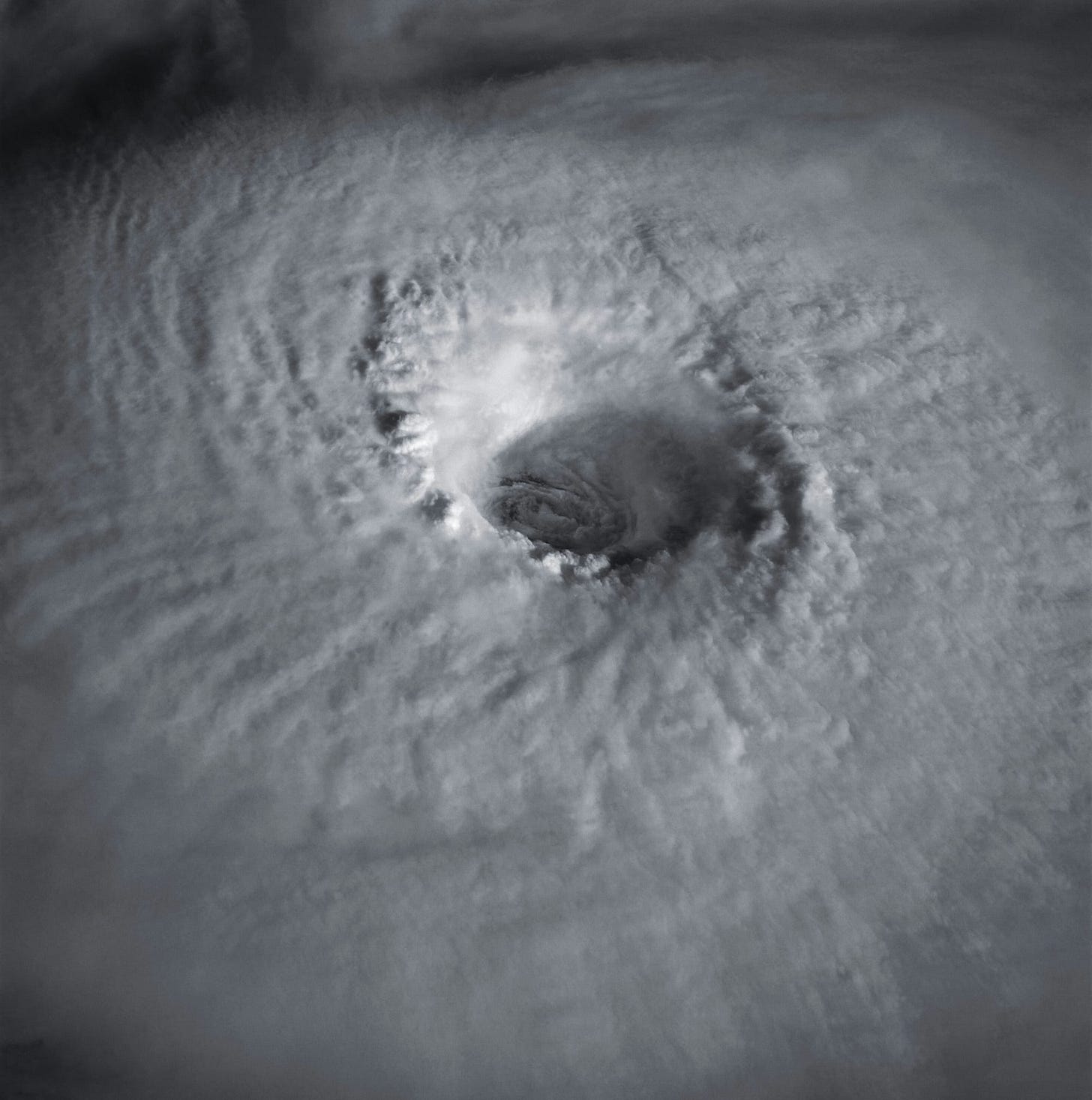
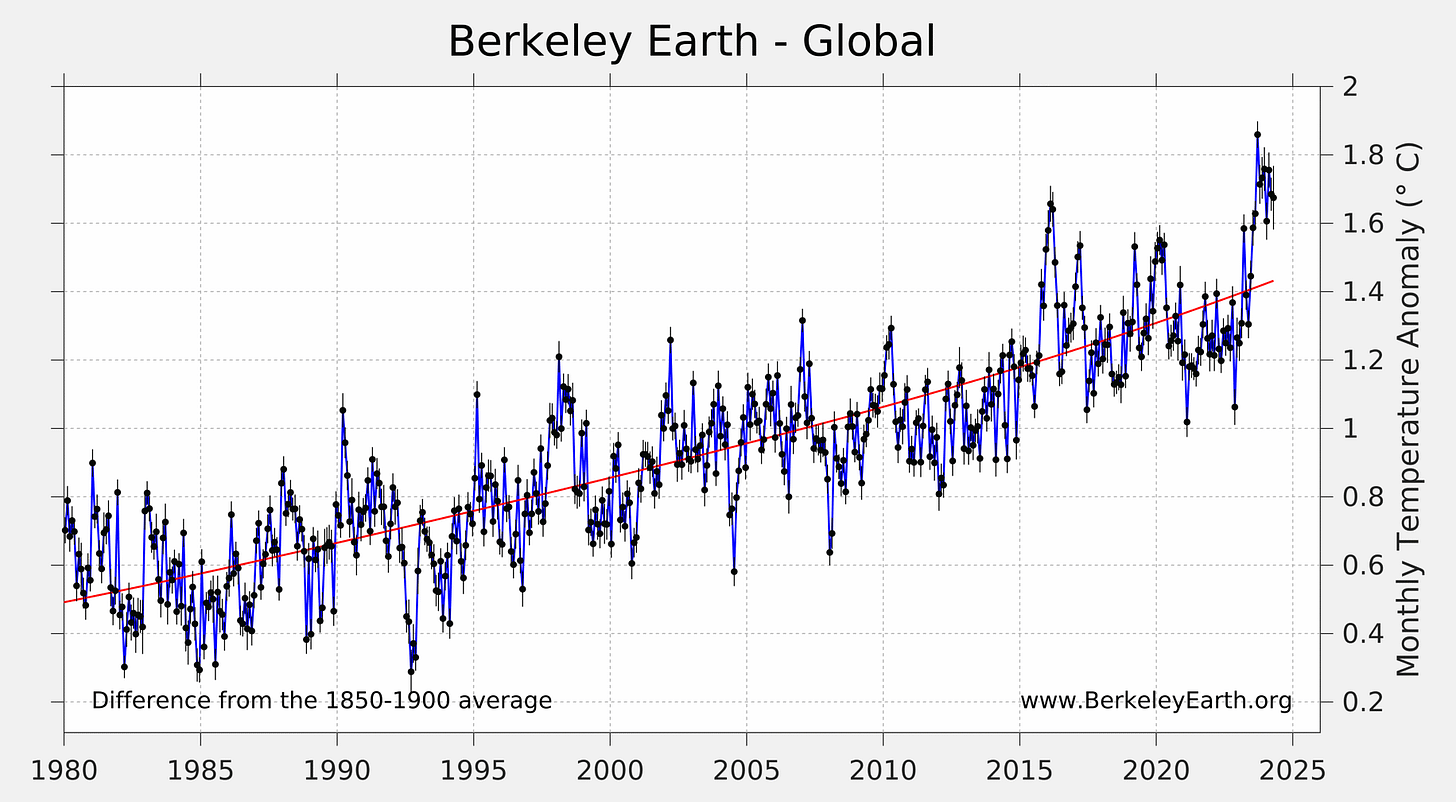
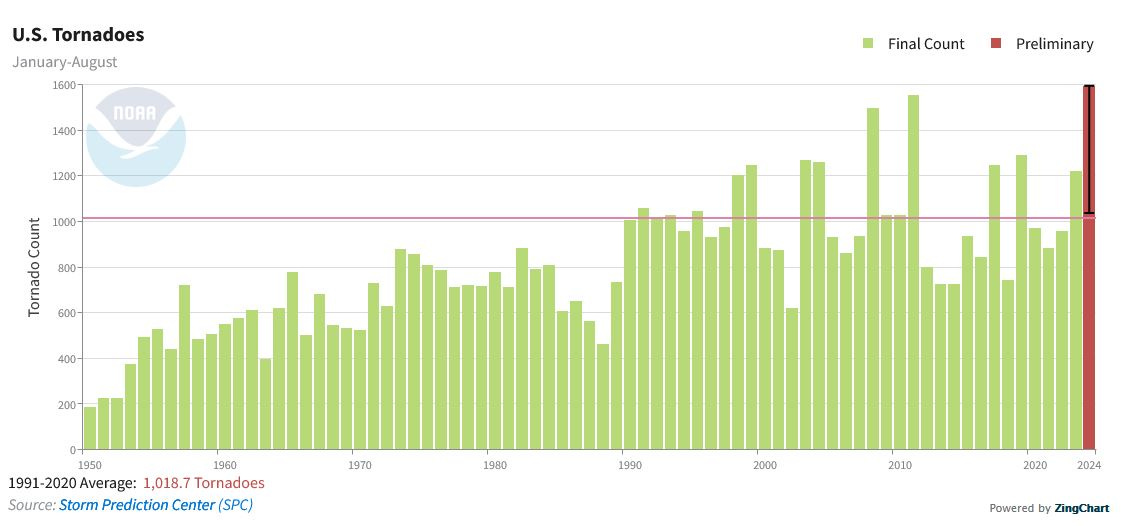
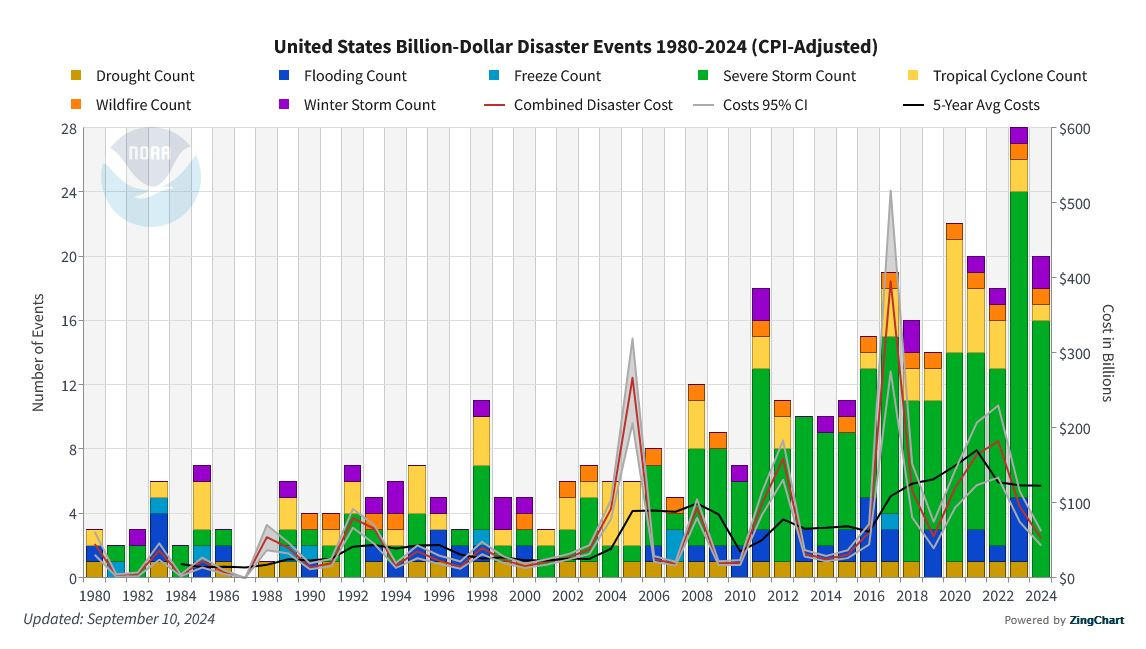
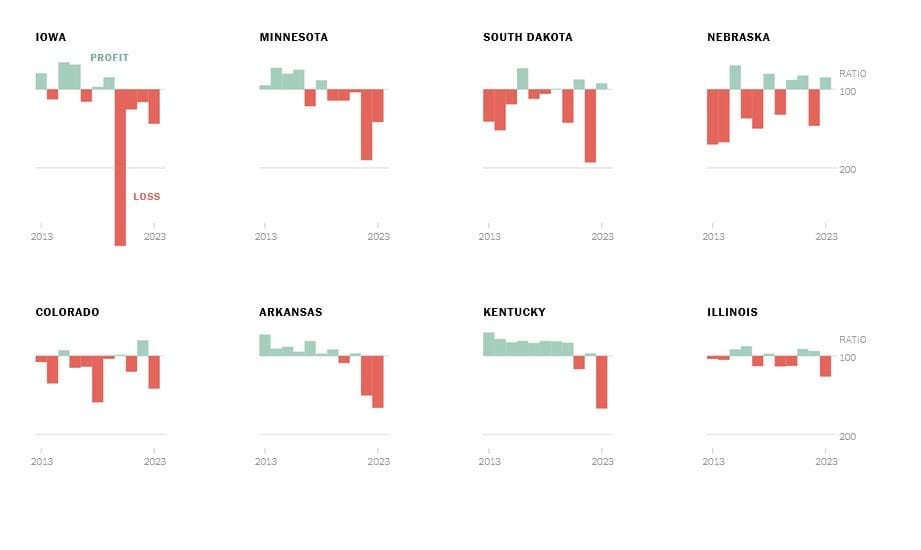
Brilliant piece. I mean… utterly terrifying, of course… but brilliantly put. Thank you.
Being proactive is increasingly impossible when faced with something this big. It's not viable to prepare for all or even most of the challenges.
Being reactive, once the situation is clear because it's bearing down on you, will be too little, too late.
All we're doing is trying to having contingencies in place to stave off the worst of the beginning of the collapse. I guess buying time?
But maybe it's a fool's game.